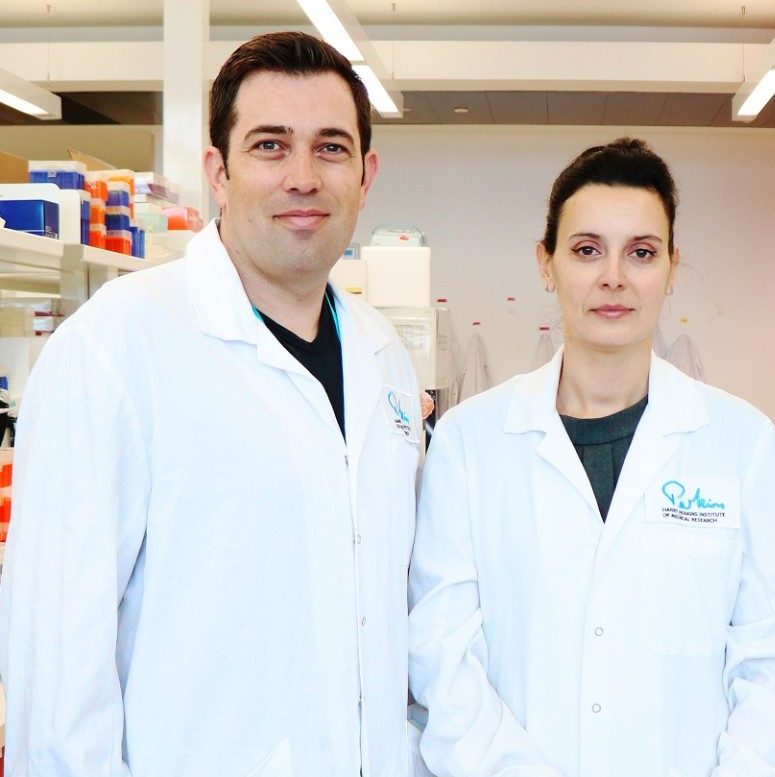
WA to benefit from $35m investment in synthetic biology.
Creating artificial genes and proteins that program cells in ways only limited by the imagination was previously the domain of science fiction but is now a reality and two Perth scientists have been given lead roles in one of the world’s largest synthetic biology centres based in Australia.
Seven Australian universities and 25 partners have been funded by an Australian Research Council (ARC) $35m commitment to a Centre of Excellence in Synthetic Biology (CoESB) led by Macquarie University’s ARC Laureate Fellow Professor Ian Paulsen.
The Centre combines engineering with molecular biology to design and construct innovative biological systems (organisms) that can convert biomass from agriculture or waste streams to biofuel, biodegradable pesticides, bioplastics and other high-value chemicals.
However, two Perth scientists add a different dimension. University of Western Australia’s Professor Aleksandra Filipovska and Curtin University’s Professor Oliver Rackham, both based at Perth’s Harry Perkins Institute of Medical Research are the biomedical synthetic biologists in the collaboration who apply the technology to developing new drugs to combat disease.
Prof Filipovska is Deputy Director of the National ARC Centre of Excellence and Professor Oliver Rackham will lead the Western Australian centre of Synthetic Biology.
“Our research groups are investigating the use of synthetic biology to solve medical problems in addition to solving agricultural challenges, or to convert biomass and waste into useful products.
“We are applying it to solving problems like overcoming antibiotic resistance. At the WA Centre we will have something unique because we can use synthetic biology to create new drugs, new antibiotics and new ways to diagnose and treat diseases.
“Synthetic biology is so exciting because we can make completely artificial genes and proteins and as a result we can unleash the potential of microbes as biofactories for medicinal, agricultural and industrial applications,” said Professor Filipovska.
Professor Rackham’s laboratory has already been investigating ways to manipulate brewer’s yeast to overcome antibiotic resistance.
“The big advantage we have in Western Australia is that the synthetic biology done here has a medical focus. We’re uniquely applying the principles of synthetic biology to develop therapeutics in Australia.
“We now have the ability to completely re-wire the genes of living cells, we can turn them into microscopic factories to make drugs, biofuels and plastics.
“You can program a cell to detect a particular type of disease that currently requires a lot of different tests to detect at present.
“You can program a cell to detect a metabolic change in a person and very quickly get a diagnosis,” said Professor Rackham.
The pair also see great potential for use in the mining as well as agricultural sector through the development of novel microbial cell factories.
“One of the visions we have is to build little new local economies with specific high value products produced from materials that usually end up in the waste.”
“The unique thing about this is you can set up a microbial factory in any town, rather like a micro-brewery, and they can engineer microbes to process the leftover waste from agricultural products specific to the area and produce valuable products that the town or region can use.
“It can even create artificial spiderweb silk which is extremely strong and can be woven into clothing material.
“You’re only limited by your imagination because we can make anything,” said Professor Rackham.”
“Imagine if we take the by-products of sugar cane and use it to make biofuels to run our cars. It is our goal that everything we produce with our synthetic microbes is bio-degradable and sustainable for our environment,” said Professor Filipovska.
The Centre of Excellence will combine expertise from science and medicine with the humanities and social sciences to create real-world solutions to some of our greatest problems.
